UCMJ Article 105: Forgery
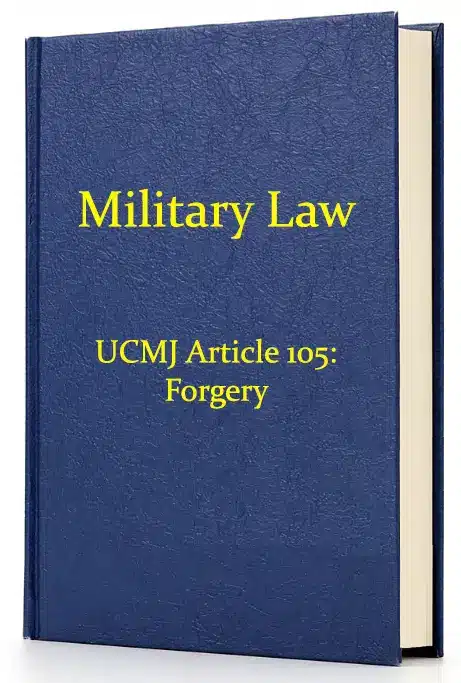
Forgery may be committed either by falsely making a writing or by knowingly uttering a falsely made writing. There are three elements common to both aspects of forgery: a writing falsely made or altered; an apparent capability of the writing as falsely made or altered to impose a legal liability on another or to change another’s legal rights or liabilities to that person’s prejudice; and an intent to defraud.
UCMJ Article 104b: Unlawful enlistment, appointment, or separation
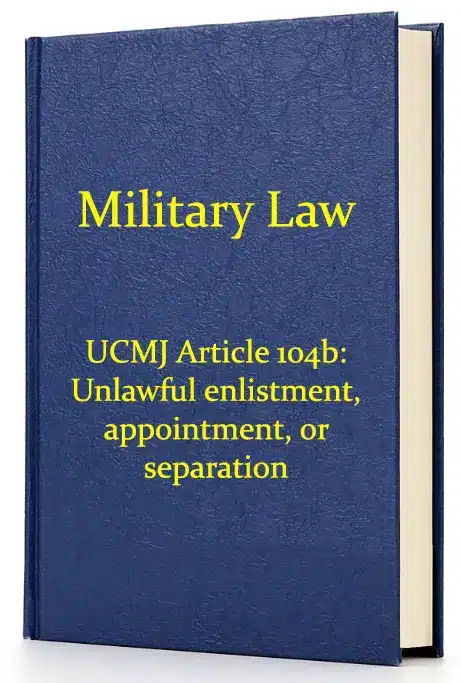
Article 104b refers to an enlistment, appointment, or separation prohibited by law, regulation, or order when made and that the accused knew that the person enlisted, appointed, or separated was ineligible.
UCMJ Article 104a: Fraudulent enlistment, appointment, or separation
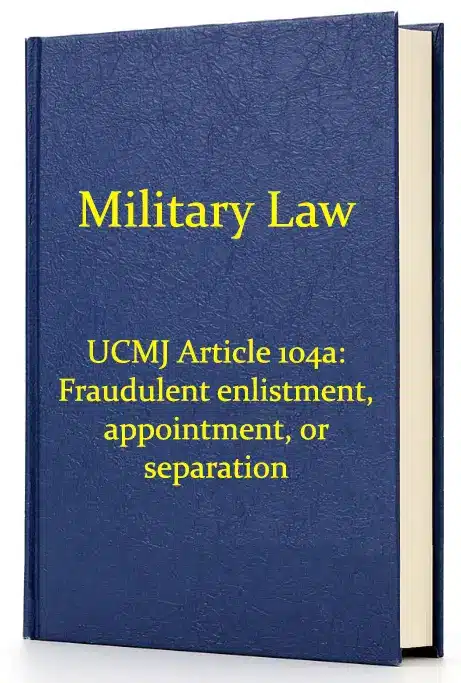
A fraudulent enlistment, appointment, or separation is when the accused knowingly and willingly falsified or concealed elements or matters specific to the qualifications prescribed by law, regulation, or orders for a particular enlistment, appointment, or separation. This may include information used by a recruiting, appointing, or separating officer in deciding on enlistment, appointment, or separation in a specific case.
UCMJ Article 104: Public Records Offenses
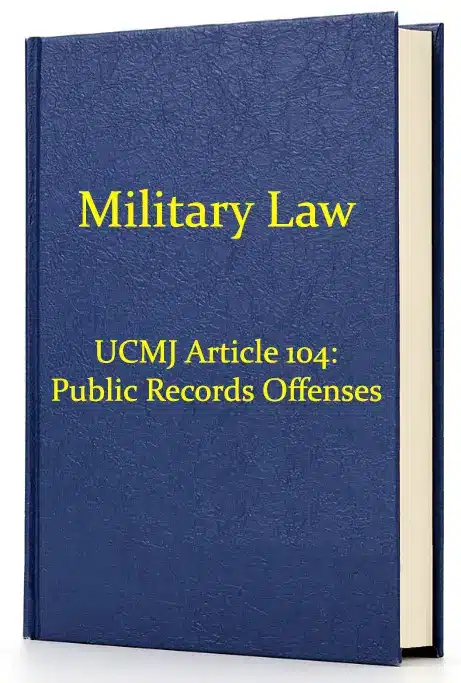
The public records included in a public records offense are any and all records, reports, statements, or data compilations, in any form, of public offices or agencies, outlining or detailing the activities of the office or agency, or matters observed pursuant to duty imposed by law as to which matters there was a duty to report. These records also include classified matters.
UCMJ Article 103b: Aiding the Enemy
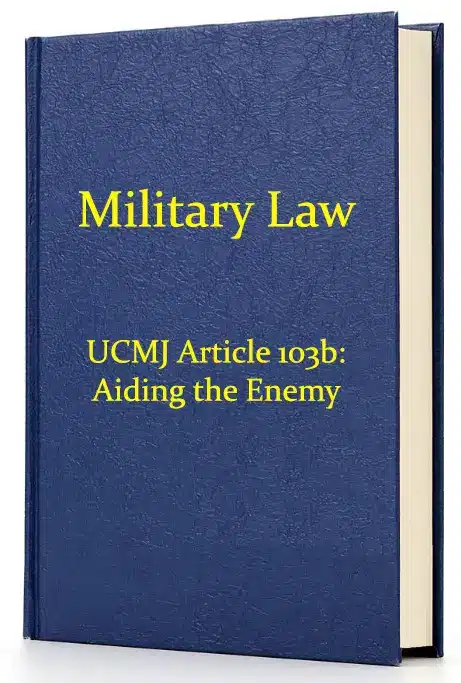
Aiding or attempting to aid the enemy refers to the transfer of arms, ammunition, supplies, money, etc. to an enemy, this does not include the furnishing of subsistence, quarters, comforts, or aid that is lawfully entitled to prisoners of war.
UCMJ Article 103a: Espionage
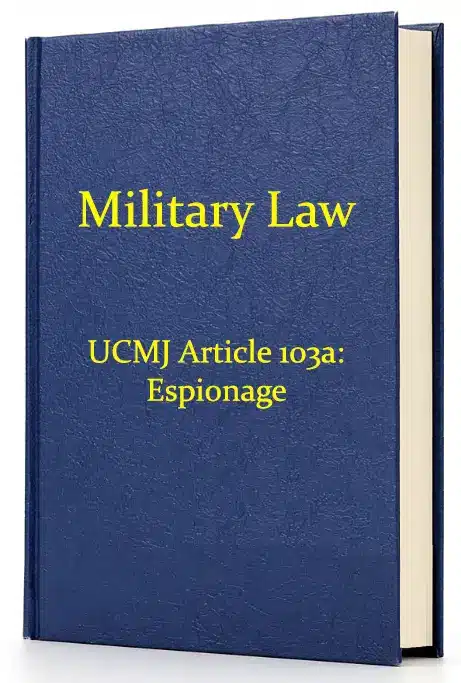
The accused must have intended for or had reason to believe the information or documentation provided to the other party would be used to either harm the United States or to give an advantage to a foreign nation.
UCMJ Article 103: Spies
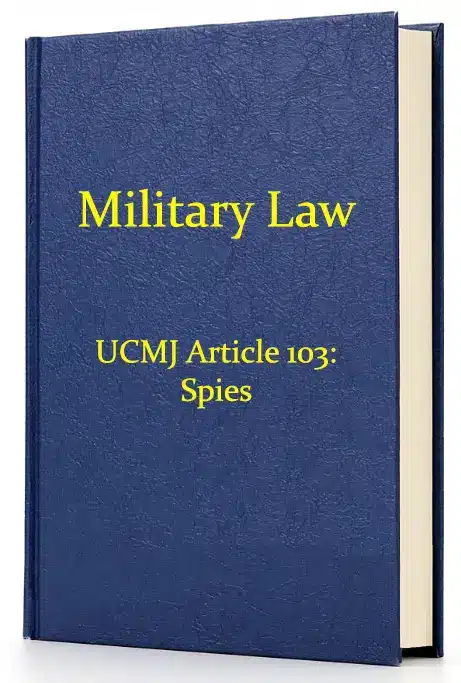
The words “any person” in the statute’s text effectively bring any person who commits spying under the jurisdiction of general court-martial-lawyer and military commissions, no matter their nationality or status. For the offense to be executed, the accused must have acted clandestinely or under pretenses with the express intent of obtaining information to convey to a hostile party.
UCMJ Article 102: Forcing a Safeguard
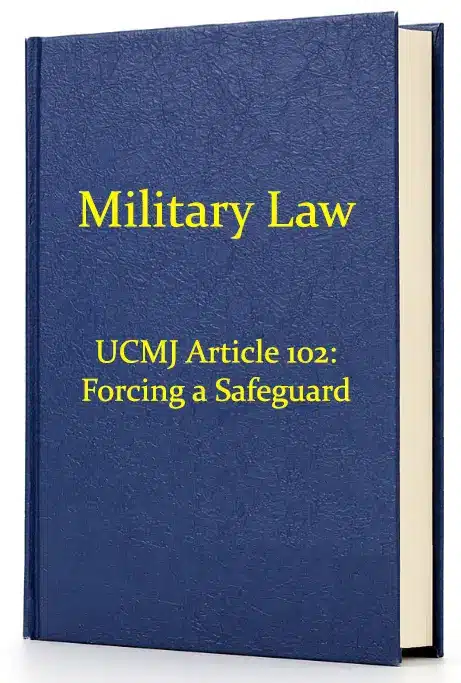
The purpose of a safeguard is to pledge the honor of the nation that the person or property shall be respected by the national armed forces. The forcing of a safeguard is the commission of an act or acts that are in violation of the protection of the safeguard.
UCMJ Article 101: Improper Use of Countersign
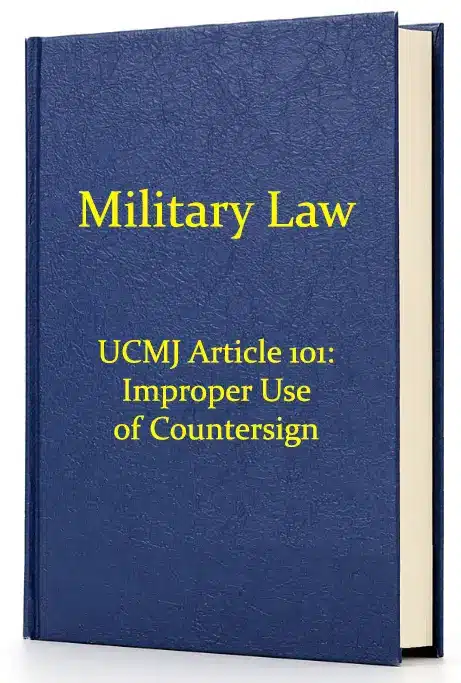
A countersign is a word, signal, or procedure handed down from the command at the principal headquarters to assist guards and sentinels in identifying individuals authorized to pass through the lines during the war. It usually consists of a challenge and a password, signal, or procedure. A parole is the word used to check the countersign. It is given to those authorized to inspect guards and the commanders of guards.
UCMJ Article 100: Subordinate Compelling Surrender
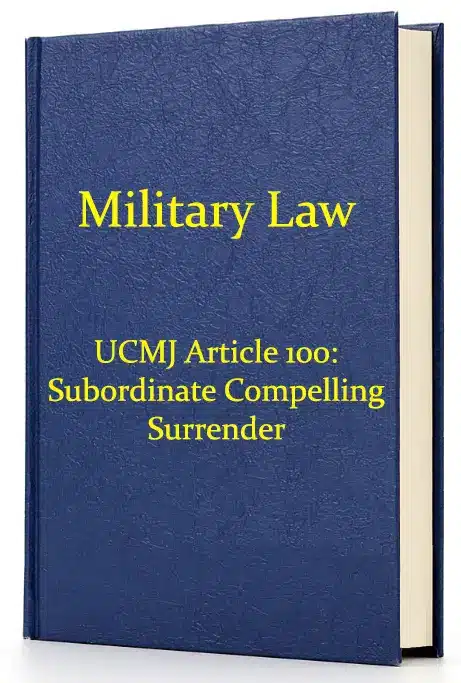
Compelling surrender and attempting to compel surrender require the surrender or abandonment to be made or attempted through actions, not words. Apparent surrender requires the place, military property, or command to be abandoned or given up for the offense to be complete.
